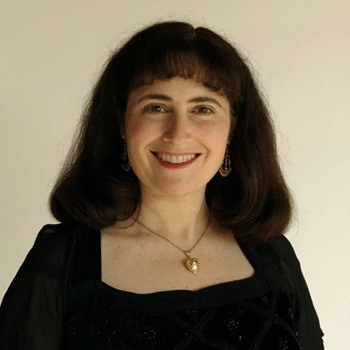When opera emerged in the 16th century, did audience members think this music would still be performed 450 years later? With the invention of so many mediums that produce a wide array of music, it is somewhat of a miracle that opera managed to survive century after century. For local classical soprano Sharon Abreu, the value of keeping this music alive is just part of what makes her passionate about opera.
“For me, more than the historical importance is the joy of it. Styles of music have gone out of the repertoire and then were rediscovered many years later,” she said. “I feel lucky to live in a time where you can get up and perform any style of music, and there’s centuries of great repertoire to choose from.”
Abreu, shown right, will present “Moon, Sun, Stars and Rainbows: classical songs and arias to delight and inspire” at the Orcas Center, Saturday, Sept. 21, 7:30 p.m. Tickets are $25, $19 for center members and $11 for students.
Abreu has sung as a soloist with Orchestra Seattle and the Seattle Chamber Singers and with the Orcas Choral Society. She has recently been appointed the vocal coach for the society. She also starred in the musical “The Taffetas” at Orcas Center and has performed in the One World Music Festivals.
The local soprano will offer an array of songs and arias in English, Italian, French, German and Spanish, from Mozart and Puccini, to Samuel Barber and Jake Heggie. Abreu even reaches back to “Sweet Bird” from Handel’s “Il Penseroso,” which was composed in 1740, the year before he composed “The Messiah.” Islanders who have attended Abreu’s Brown Bag concerts at the Emmanuel Episcopal Church will not be surprised to hear the singer diverging into new territory. One unique song at the show will be her original setting of Jack Prelutsky’s poem “The Dragons are Singing Tonight.”
“The music is classically influenced, and the poem is totally delightful,” she said.
Bill Griswold, Mike Hurwicz and Cynthia and Craig Abolin will join her on this song. Other special guests will join her for some duets including Grace McCune for the “Flower Duet” from Delibes’ opera “Lakme.”
Linda Slone will play flute on Handel’s “Sweet Bird” and Gounod’s “Sing, Smile and Slumber.” Pamela Wright, who Abreu describes as “our wonderful public school music teacher” will play violin on two of the songs. Cellist Karen Fardal, who played in the orchestra for Mozart’s Requiem on Orcas, will play for a few pieces. Sasha Hagen will play violin on two other songs. Hagen was Abreu’s student when she taught music at the Salmonberry School. Marianne Lewis will accompany Abreu on the piano.
“Many of the songs are under three minutes and I think of them like little pieces of candy that you savor and then they just melt away,” said Abreu.



